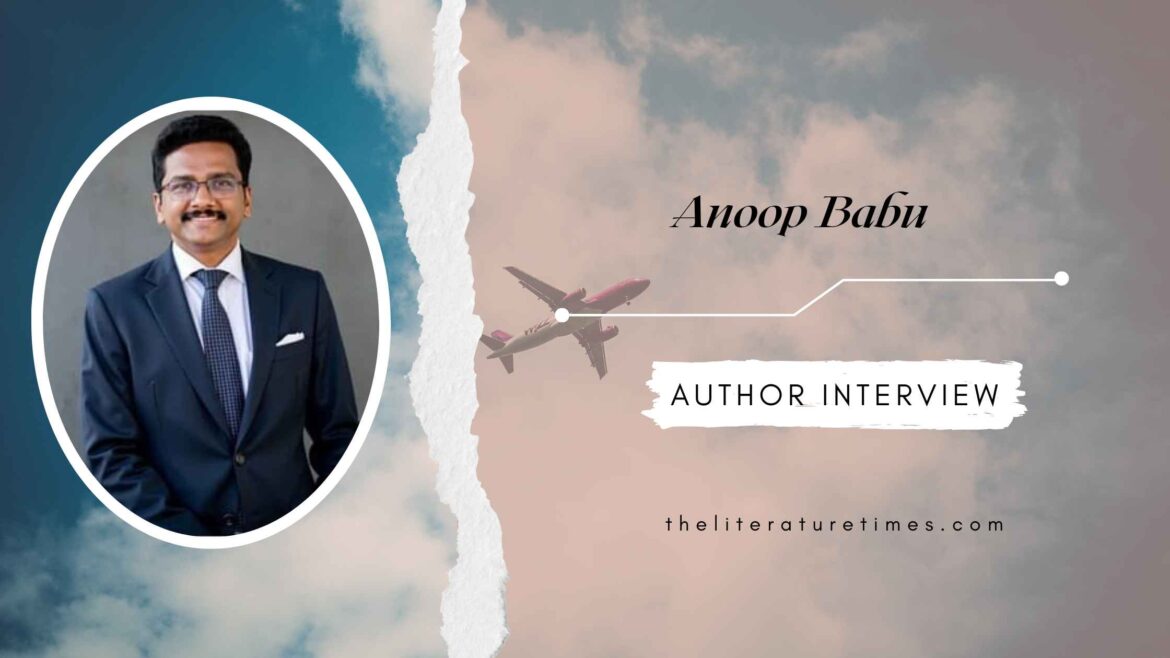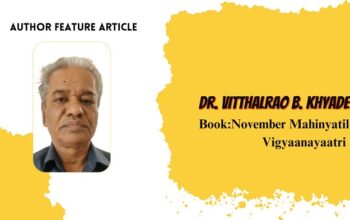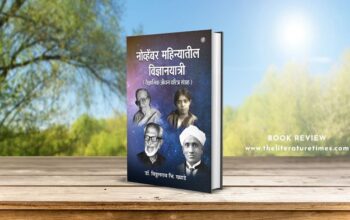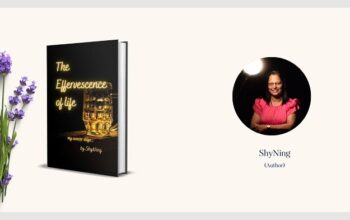Anoop Babu is a multifaceted literary voice from Ernakulam, Kerala, whose work bridges tradition and innovation. A senior auditor by profession and a poet at heart, Anoop made his literary debut with the acclaimed Malayalam poetry collection Ninnilekk Nadannethumpol (“When Walking Towards You”), a book that earned both critical praise and popular success. Deeply rooted in human values and love, his verses echo the soul of Malayalam literature. Anoop’s commitment to his roots is evident in his insistence on writing his first book in his mother tongue.
He later made national headlines as the first Indian author to publish an AI-assisted English fiction novel, The Doctor’s Dilemma: AI Meets Human, earning multiple prestigious awards and global recognition. His blend of poetic sensibility and futuristic storytelling makes him one of the most exciting literary voices of our time. His works are not just creative expressions but also bold steps toward redefining how we perceive literature in the age of technology.
The Literature Times: Your debut book Ninnilekk Nadannethumpol is rich in emotion and human values. What inspired this collection of poems?
Anoop Babu: My debut book “Ninnilekk Nadannethumpol” is indeed rich in emotions and human values. This collection of poems was inspired by my deep connection to Malayalam literature and culture, which has been a part of my upbringing and identity.Through these poems, I aimed to express the complexities and nuances of human emotions, drawing from personal experiences, observations, and reflections on life.
The Literature Times: Why was it important for you to debut in Malayalam, even though your second book was in English?
Anoop Babu: For me, debuting in Malayalam was a way to pay homage to my roots and cultural heritage, which is deeply connected to the language. It allowed me to express myself authentically and tap into the rich literary traditions of Malayalam, which has a special place in my heart.
The Literature Times: You’ve successfully merged AI with storytelling in your second book. How did that transition happen from poetry to AI-driven fiction?
Anoop Babu: The seeds of merging Al with storytelling were sown during my experimentation with language and creative expression. As I explored the possibilities of Al-driven writing, I realized that fiction offered a vast canvas to explore complex themes, characters, and narratives, allowing me to push the boundaries of storytelling in innovative ways. My collaboration with AI on “The Doctor’s Dilemma” became the perfect opportunity to bring this vision to life.
The Literature Times: What challenges did you face while writing your first book, especially in Malayalam poetry?
Anoop Babu: One of the biggest challenges I faced while writing “Ninnilekk Nadannethumpol” was conveying complex emotions and ideas within the nuances of Malayalam language, while staying true to the traditional forms of Malayalam poetry. Additionally, finding the right words and imagery to evoke the desired emotions in the reader was a task that required patience, dedication, and a deep understanding of the language and its cultural context.
The Literature Times: How do you balance your work as a Senior Auditor and your passion for writing?
Anoop Babu: Balancing my professional life as a Senior Auditor and my passion for writing required discipline, time management, and a clear separation between my two identities, allowing me to focus on each aspect without compromising one for the other. My experiences as an auditor also influenced my writing, providing valuable insights into human nature and behavior that I drew upon in my stories.
The Literature Times: As the first Indian to write an AI-assisted English novel, how do you see the future of AI in literature?
Anoop Babu: As the first Indian to write an Al-assisted English novel, I firmly believe that the future of Al in literature holds immense potential for growth and innovation.
I envision Al playing a more integral role in the creative process, augmenting human imagination and enabling writers to explore new frontiers of storytelling. This synergy between man and machine will revolutionize the literary landscape, opening doors to fresh perspectives and groundbreaking works that blend the best of human intuition with the precision of artificial intelligence.
The Literature Times: Your work focuses a lot on the decline of values in modern society. How do you reflect that in your poetry?
Anoop Babu: My poetry reflects the decline of values in modern society by exploring themes of existential crisis, moral ambiguity, and the search for meaning in a chaotic world. Through my words, I attempt to capture the essence of human struggle, highlighting the disconnect between traditional values and modern aspirations, and inviting readers to introspect and reconnect with what truly matters.
The Literature Times: What advice would you give to aspiring poets and writers who wish to write in regional languages?
Anoop Babu: To aspiring poets and writers who wish to write in regional languages, I would advise them to stay true to their cultural roots and tap into the rich literary heritage of their native language. Immerse yourself in the works of regional writers, understand the nuances of the language, and find unique ways to express yourself within the context of your culture.
Authenticity and passion are key to creating meaningful works that resonate with readers.
The Literature Times: What can readers expect from you next? Are there any upcoming books or projects we should look forward to?
Anoop Babu: Readers can expect another English novel, this time a fiction work that explores the intersection of science and spirituality, delving deeper into themes that resonate with modern society.
Additionally, I’ve also been considering publishing a collection of poetry in English, showcasing my growth as a writer and poet.
These projects are currently in the works, and I’m excited to share them with readers soon.



